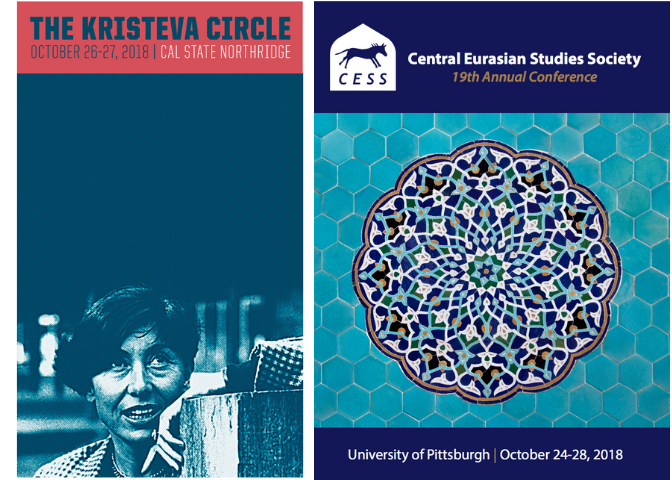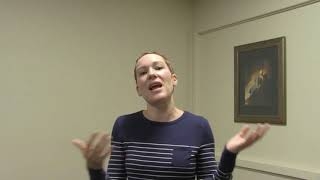Fellows Attend and Represent MIR at Conferences

First semester MIR fellow Megan McCullough (IPD ’20) presented her work on Ukrainian filmmaker Kira Muratova at the Kristeva Circle conference held last weekend at California State University, Northridge. MIR also provided Jacob Dwyer, another fellow of the Initiative, to attend the Central Eurasian Studies Society Annual Conference, which took place from October 26 to October 28 at the University of Pittsburgh in Pennsylvania.
The Kristeva Circle is an annual international, interdisciplinary conference that “supports research on or influenced by philosopher, psychoanalyst and novelist Julia Kristeva” (kristevacircle.org). In her paper entitled, “The Absence of the Mother: Maternal Abandonment, Abjection, and the Search for Identity in Kira Muratova’s Ofeliia (1997),” McCullough connects the film’s central theme of maternal abandonment to the state of a nation plunged into psychosis through the breakdown of the great motherland; thus, linking the killing of the abject mother with post-Soviet cinema’s search for a national identity.
MIR also provided Jacob Dwyer, another fellow of the Initiative, to attend the Central Eurasian Studies Society Annual Conference, which took place from October 26 to October 28 at the University of Pittsburgh in Pennsylvania. The conference brings together academics from all fields of study who share a passion in Central Eurasia, providing an opportunity for the community to come together and share their findings.
As a student of Public Administration and Policy here at the Institute, Dwyer used the opportunity to deepen his knowledge of Gender Studies in Central Asia, with an eye towards LGBTQ+ policy. As part of the conference, Dwyer attended two sessions aimed at bridging the academic and activist circles titled “Scholars as Engaged Citizens”. These sessions brought scholars together around specific topics to create action plans for making change in the field. In collaboration with activists from Kazakhstan, Kyrgyzstan, and Tajikistan, Dwyer’s team created a strategy for decolonizing Central Eurasian Studies by bringing knowledge back to the communities where it was originally chronicled.
If you are interested in knowing more about this project, or would like to get involved in the process of translating academic research into Russian or a Central Eurasian language, please notify Jacob Dwyer at jacobd@middlebury.edu.


